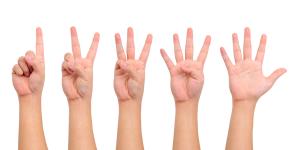Why Do You Drool in Your Sleep?


Our bodies naturally produce a surprising amount of saliva each day to keep our mouths healthy. But sometimes, that saliva decides to take a nighttime joyride down your cheek. While drooling during sleep is common, it can also be a sign of other factors affecting your slumber.
In this article by oneHOWTO, we'll explore the reasons behind nighttime drooling and offer solutions to help you sleep dry.
Incorrect posture
Sleeping with incorrect posture, particularly on your side or stomach, can sometimes lead to drooling during sleep. When in these positions, gravity can cause saliva to pool in the mouth and potentially drip out. Unlike when sleeping on your back, where saliva is more likely to be naturally swallowed, side or stomach sleeping can exacerbate drooling issues. Improving sleep posture by sleeping on your back may help alleviate drooling caused by incorrect positioning during sleep.
Sleep disorders
Sleep disorders, such as sleep apnea, can also contribute to increased drooling during sleep. In conditions like sleep apnea, the relaxation of muscles controlling the mouth and throat can lead to a higher likelihood of drooling. This phenomenon is exacerbated when sleeping in positions that may already promote drooling, such as on the side or stomach. Addressing underlying sleep disorders through appropriate treatment may help reduce drooling episodes during sleep.

Oral health issues
Several mouth problems can cause you to produce more saliva than usual. These include:
- Gum disease (periodontal disease), a bacterial infection that irritates your gums, triggers your body to fight back with extra saliva.
- Tooth decay (dental caries), or cavities, create an acidic environment that saliva helps neutralize to protect your teeth.
- Mouth ulcers (canker sores) are painful sores that also stimulate saliva production as your body attempts to cleanse and heal the area.
Other factors like poor oral hygiene, dry mouth, or irritation from dental appliances can contribute to increased saliva as well. To prevent these issues, maintaining good oral hygiene with regular brushing, flossing, and dental checkups is key. If you experience persistent problems with saliva production or your mouth in general, consult a dentist for proper diagnosis and treatment.
Difficulty breathing
This can happen due to problems like teeth alignment issues or rhinitis (inflammation in the nose). When breathing through your nose becomes challenging, even the normal amount of saliva production can lead to drooling. To address nasal congestion, nasal washes can help clear your nasal passages. However, it's always best to consult a doctor to identify the root cause and get the most effective treatment.
Poor hydration
Poor hydration can lead to dry mouth as the body's salivary glands produce less saliva. When the mouth is dry, the salivary glands may work harder to lubricate it, resulting in increased saliva production. It is indeed advisable to maintain proper hydration throughout the day and keep water readily available, such as having a glass of water or a bottle next to your bed, in case you wake up thirsty at night. Drinking water can help alleviate dry mouth and promote overall hydration, which is essential for overall health and well-being.

Medications
Medications can play a role in causing drooling during sleep. Some medications have side effects that increase saliva production or affect muscle control, which can contribute to drooling issues. When taking such medications, individuals may experience heightened drooling during sleep, regardless of their sleep position. Consulting with a healthcare provider about medication side effects and potential alternatives may help manage drooling episodes during sleep.
Neurological diseases
Some neurological conditions can lead to increased saliva production, which is known as sialorrhea or hypersalivation. Conditions such as Parkinson's disease, stroke, and cerebral palsy can affect the nerves and muscles involved in controlling saliva production and swallowing, resulting in excessive saliva.
In addition to increased saliva production, individuals with these neurological conditions may experience other symptoms, such as difficulty swallowing (dysphagia), drooling, or aspiration, where saliva or food enters the airway instead of the esophagus.
If someone experiences symptoms such as severe headaches or other concerning symptoms along with excessive drooling, it may indicate an urgent medical issue, and they should seek medical attention promptly for evaluation and appropriate management.
How to avoid drooling when you sleep
There are various options available to help prevent or manage drooling while sleeping, ranging from home remedies to medical interventions:
Home Remedies
- Biting into a slice of lemon: the sour taste of lemon can stimulate saliva production and swallowing, reducing drooling.
- Staying well hydrated: drinking water throughout the day and keeping a glass of water by the bedside can help maintain proper hydration and reduce dry mouth, which may contribute to drooling.
- Using a humidifier: adding moisture to the air with a humidifier can help keep nasal passages lubricated and improve breathing, reducing the risk of mouth breathing and drooling.
- Applying saline solution to the nose: saline nasal sprays or rinses can help clear nasal congestion, allowing for better airflow and reducing the likelihood of mouth breathing and drooling.
Medical Interventions
- Jaw device: a dentist or sleep specialist may prescribe a jaw device, such as a mandibular advancement device, to help position the jaw and airway for improved breathing and reduced drooling during sleep.
- Splint: for individuals with bruxism (teeth grinding), a splint or night guard may be recommended to protect the teeth and jaw joints and prevent excessive saliva production associated with oral irritation.
- Botox injections: in some cases of severe drooling, particularly due to neurological conditions, Botox injections into the salivary glands may be considered to temporarily reduce saliva production.
- Surgery: in rare and severe cases where other treatments have been ineffective, surgical procedures may be recommended to address underlying anatomical issues contributing to drooling, such as obstructive lesions or abnormalities in the oral or nasal passages.
It's important for individuals experiencing persistent or severe drooling during sleep to consult with a healthcare professional, such as a dentist, sleep specialist, or neurologist, for proper evaluation and personalized treatment recommendations based on the underlying cause and individual needs.
This article is merely informative, oneHOWTO does not have the authority to prescribe any medical treatments or create a diagnosis. We invite you to visit your doctor if you have any type of condition or pain.
If you want to read similar articles to Why Do You Drool in Your Sleep?, we recommend you visit our Mental health category.






